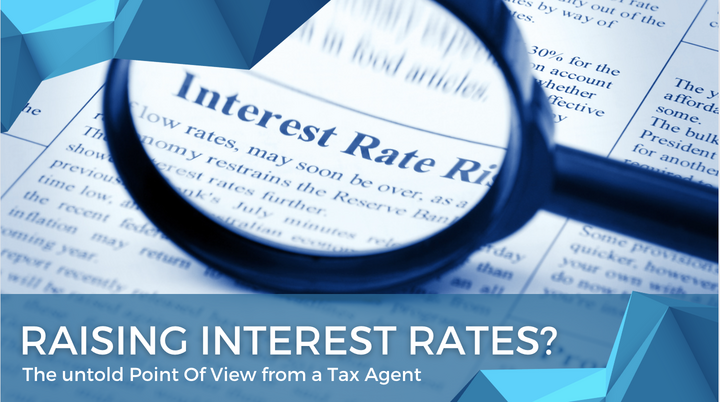
Behind interest & inflation, how is your wealth being affected?
Inflation and interest rates tend to move in the same direction, and in the long term, raising interest rates and inflation can reduce the purchasing power of your income and wealth. This implies that even if you invest and save money, the wealth you accumulate buys less and less stuff over time. This is why people who have comprehensive investment strategies and tax planning can effectively hedge the risk of macroeconomic control policy.
Real estate and interest rates, the property value from buyers’ and sellers’ views.
In terms of investing in the real estate market, the conventional wisdom is that raising interest rates makes it harder to buy and sell a home while falling rates make buying and selling easier.
For example, someone who wants to buy a $1,000,000 home and apply for a 30-year fixed mortgage will pay more when the interest increases by 1%. From a homebuyer’s perspective, as mortgage rates rise, their affordability falls, in addition, someone would have liked to qualify for a lower interest rate on a $1,000,000 mortgage, but when interest rates rise, the lender can only offer the client less based on his eligibility, hence, lower the purchasing power.
Raising mortgage rates can also affect a seller, as with higher interest rates, potential buyers can only pay less for the house, there is no question that sellers can still make a profit on the sale, but raising interest rates will reduce the market value of their homes.
Facts have proven, raising interest rates does have a very noticeable impact on both buyers and sellers, which could be anyone who doesn’t have a smart investment strategy as well as a proper business structure.
For homebuyers and property investors, the investment strategy can be positive with successful planning.
As interest rates rise, there could be a positive impact on real estate investment. Not only as fewer borrowers are eligible for loans, fewer real estate transactions, and reduce prices, but also increasing interest could be the feed of the tax benefit under negative gearing. In addition, for those people who have paid off the mortgage, with the use of the most valuable investment structure as a family trust, they will be able to be tax benefit under income streaming further.
There are always two ways of thinking when things change, it only depends on which perspective you are looking from.
What is Negative Gearing? How is it going to bring you tax benefits?
Negative gearing is a form of financial leverage in real estate investing that describes the purchase of an income-generating asset (such as a rental property) that does not generate enough income to cover the cost of the asset.
The main advantage of negative gearing is the ability to deduct any net rental losses you have during the fiscal year from other revenue. Your taxable income and the amount of tax you owe are subsequently decreased.
Another way, is negative gearing becomes a profitable investment is when the property is eventually sold through capital appreciation.
A mortgage with a fixed or variable interest rate? Which one suits you?
There are advantages to both fixed and variable-rate loans, so the choice depends on your personal and financial situation.
Advantages of fixed rate mortgage
The main advantage of a fixed-rate mortgage is a certainty. Clients who ‘fix’ their interest rate can plan, knowing that their repayments will remain the same during that time. In this case, clients can know what their repayments are each cycle to protect themselves from raising interest rates.
While the interest rate is fixed, the total amount of interest a client pays depends on the term of the mortgage. The most common fixed-rate terms are 15, 20 and 30 years.
Although the longer the mortgage, the more client choose it because it offers the lowest monthly payment. However, the price of this low payment is that the overall cost is much higher because clients spend more extra time paying interest. Relatively speaking, short-term mortgages have a higher monthly payment, so the principal can be repaid in a shorter period. Therefore, the overall cost of a short-term mortgage is much lower.
Advantages of variable rate mortgage
A variable rate mortgage is a mortgage with a flexible interest rate. A client’s interest rate may rise or fall throughout the life of the loan. When interest rates rise, variable rates on mortgages also adjust higher. This means that the client’s monthly repayments will also increase. The main advantage of a variable rate mortgage is a lower initial payment than a fixed rate loan and the fact that clients can make lower payments if interest rates drop. However, when interest rates rise, mortgage payments may increase. That could lead to borrowers being unable to afford higher repayments as rate hikes happen.
When it comes to choosing between fixed and variable rates, it need to consider your personal financial circumstances to determine which mortgage is best for you at this time.
